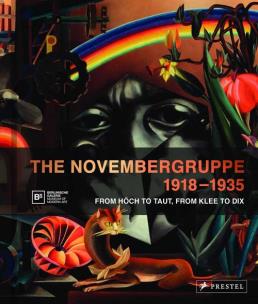- Regulamin
- Koszty dostawy
- Kontakt
- Dziś w ofercie 236 833 produkty
KSIĄŻKI
- Albumy
- Beletrystyka
- Biografie
- Dla dzieci i młodzieży
- Edukacja
- Ekonomia i biznes
- Ezoteryka
- Historia
- Informatyka
- Kalendarze
- Komiksy
- Kryminał i sensacja
- Kultura i sztuka
- Literatura faktu
- Literatura kobieca
- Literatura piękna
- Medycyna
- Nauka języków obcych
- Nauki humanistyczne
- Nauki przyrodnicze
- Nauki ścisłe
- Podręczniki
- Poradniki
- Prawo i administracja
- Przewodniki i podróże
- Psychologia
- Religia
- Sport
- Technika
- Zdrowie i uroda
ZABAWKI
- Artykuły dla niemowląt
- Bączki
- Bujaki i skoczki
- Ciągnij / pchaj
- Dla niemowlaka
- Grzechotki i gryzaki
- Karuzele i pozytywki
- Maty i centra zabaw
- Projektory i lampki
- Sortery i piramidki
- Zabawki
- Edukacyjne i kreatywne
- Figurki
- Klocki
- Lalki
- Pojazdy
- Pluszaki i maskotki
- Sport i rekreacja
- Zabawa w dom
- Zabawki drewniane
- Puzzle
- Do 200 elementów
- 201-500 elementów
- 501-1000 elementów
- Ponad 1000 elementów
- Puzzle 3D
ART. PAP
- Artykuły biurowe
- Artykuły piśmiennicze
- Bloczki i kartki samoprzylepne
- Dziurkacze
- Kalkulatory
- Nożyczki i nożyki
- Skoroszyty
- Teczki
- Wizytowniki
- Zszywacze
- Artykuły szkolne
- Akcesoria szkolne
- Modelowanie
- Notatniki i zeszyty
- Piórniki
- Plecaki i torby
- Pojemniki na śniadanie
- Pomoce naukowe
- Przybory matematyczne
- Przybory rysunkowe
- Upominki i gadżety
- Akcesoria do książek
- Artykuły balowe
- Breloki i zawieszki
- Drobiazgi, różności
- Kubki
- Oferta Świąteczna
- Papeteria, kartki i naklejki
- Skarpetki Many Mornings
- Upominki
GRY
MULTIMEDIA
- Audiobooki
- Beletrystyka
- Biografie i wspomnienia
- Dla dzieci i młodzieży
- Fantastyka
- Filozofia i religia
- Historia
- Literatura faktu i reportaż
- Poradniki
- Sensacja i kryminał
- Filmy DVD/BD
- Animowane
- Biograficzne
- Fantasy
- Horrory
- Komedie
- Romanse
- Science Fiction
- Sensacyjne / kino akcji
- Thrillery
- Muzyka CD
- Alternatywna
- Blues
- Dla dzieci
- Jazz
- Klasyczna
- Piosenka aktorska i poetycka
- Pop
- Rock
- Świąteczna i kolędy
- Akcesoria GSM
- Głośniki
- Kable i adaptery
- Klawiatury
- Myszy
- Słuchawki
PROMOCJE
ZDROWIE
LEGO

Novembergruppe, 1918-1935
Autor: Burmeister Ralf Kohler Thomas
Wydawca:
Prestel Publishing
ISBN:
9783791357812
EAN:
9783791357812
oprawa:
Twarda
podtytuł:
From Hoech to Taut, From Klee to Dix
format:
22.9x26.7cm
język:
angielski
liczba stron:
256
rok wydania:
2018
(0) Sprawdź recenzje
Opis produktu
Zasady bezpieczeństwa
In the wake of World War I and the German Revolution of November 1918, a group of German artists, architects, composers, and writers banded together to work toward a democratic society that would reflect the values of the Weimar constitution. Some of the most celebrated artists of the period were members or participated in their numerous exhibitions, including Otto Dix, Max Ernst, Walter Gropius, George Grosz, Ludwig Mies van der Rohe, Laszlo Moholy-Nagy, Hannah Hoech, and Piet Mondrian. In an effort to reflect the liberal values of Germany's newly established socialist government, the group was open to all styles, from Cubism, Futurism, and Expressionism to Dada, Abstraction, and New Objectivity. Until their dissolution in 1935, when they were banned by the Nazi regime, they exhibited nearly 3,000 works throughout the country. This book focuses on three distinct periods over the course of the group's history. Each section features essays and a series of elegantly reproduced illustrations. Presenting over one hundred works, this stunning compilation offers new perspectives on the avant-garde art of Weimar Germany, its socio-utopian ideals, and its attempts to build bridges inside the artistic community as well as between the artists and their fellow citizens.
CENA:
227,20
zł
Cena detaliczna:
285,10 zł
20%
rabatu
Najniższa cena z ostatnich 30 dni: 227,48 zł
Produkt niedostępny
Uwaga!!!
Ten produkt jest zapowiedzią. Realizacja Twojego zamówienia ulegnie przez to wydłużeniu do czasu premiery tej pozycji. Czy chcesz dodać ten produkt do koszyka?


Wybierz wariant produktu
